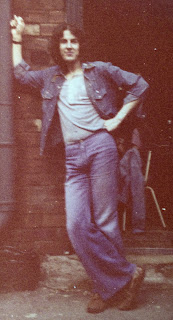Being tone deaf is not a choice, it's a disability

The main purpose of this blog post is to introduce people to an excellent piece of amusia research titled: Effects of vocal training in a musicophile with congenital amusia . If you want to dive right into it, here is a link to the article as a PDF file . If you want a little more context, please read the following. The Scenarios of Johnny and Barry Many people may be familiar with this scenario: Johnny is having trouble learning to read. His teachers say he must try harder, but however hard Johnny tries, he still has trouble reading. Rumors spread that Johnny is lazy, or stupid, or both. Then someone realizes Johnny has Congenital Word Blindness, better known as dyslexia, which these days is a widely-acknowledged learning disorder. In many progressive communities that diagnosis opens the door to sympathy, understanding, and resources developed to help Johnny deal with his disability (in the UK, dyslexia is classed as a disability under the Equality Act of 2010). Here's a...
